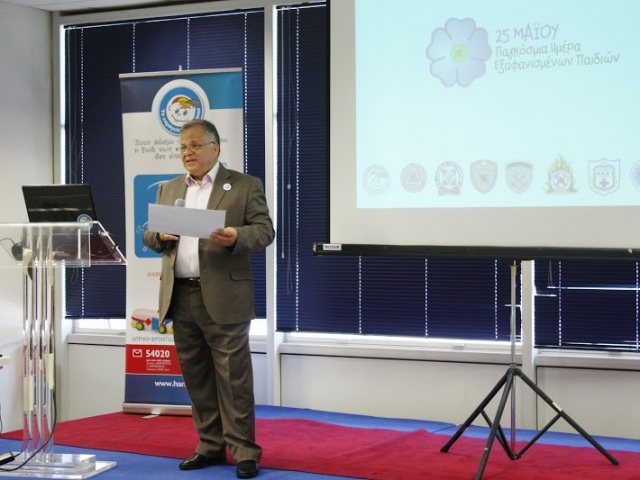Photo: iefimerida.gr
Anastasia Balezdrova
25 May is the International Missing Children's Day and traditionally the Greek child protection organization "The Smile of the Child" assesses its activity. One child is lost in Greece every day and in terms of nationality, Greek children are followed by children from Albania, Bulgaria and Romania in the ranking.
Commenting on the statistics for GRReporter, chairman of the organization Kostas Giannopoulos stressed the need for joint measures to limit and eradicate the phenomenon. "During a meeting on the subject in Bulgaria, the authorities have undertaken to establish a video surveillance system on the border. The aim is to know how many and what children leave the country in order to verify that they are returned back. This is a very important part of the Greek - Bulgarian action programme that we have created with the participation of intergovernmental organizations, including the network to find missing children," he said.
In his words, the free movement of people between the two European countries helps people who exploit children to easily cross the border.
Kostas Giannopoulos is clear that the cooperation between Bulgaria and Greece is crucial for the interruption of this process. "We are in good relations but unfortunately this is not enough to provide solutions. It is necessary to go deeper. To recognize the existence of the problem and to take action so that children do not leave their homes. It does not matter whether they are Roma or not. I say this because very often I hear that it comes down to Roma. So what? Are these children less important? Bulgarian authorities are usually concerned only when a child is found. But this is only one child. When will we be concerned about the rest of the children who are on the streets in Athens and Thessaloniki?"
Chairman of "The Smile of the Child" explained that the organization had talked with the representatives of the Bulgarian authorities in Athens to start mutual actions so that "children do not become victims of people who often are not even their parents." However, not much has been done in this direction and his expectations that the tragic death of 4-year-old Ani could give impetus to the process have not been satisfied.

"Because the actions are undertaken at European level and Bulgaria participates in this network, it also has a phone line available for missing children 116000, which is managed by the "Nadja Centre". We are working with them to achieve the best possible in exerting pressure to find a solution to the problem together, not as separate countries," he added.
Greece seems to have achieved good results, as according to official data of the Greek police department for missing minors 97-98% of the cases of missing children have been uncovered. The majority of the missing children are girls aged 13-18 years. "In 2014, 369 children were reported missing. 325 were found and the search for 44 is continuing. In the first months of this year, 126 children were reported missing, 91 have been found and the search for 35 is underway," said police representative Panagiotis Papantonis.
The main reasons that drive children to escape from their homes relate to conflicts with their parents for minor things, love relationships, mental health problems,etc. He states that there have been no cases of abductions of children for sexual exploitation or for trafficking in human organs.
In all cases, both he and Kostas Giannopoulos stress that a disappearance hides many dangers and only the involvement of the whole of society can lead to prevention that will further reduce the number of missing children.